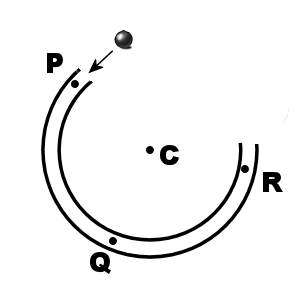Learning in the era of Pass/No pass
In light of the COVID-19 crisis, more K-12 schools and school districts are moving to Pass/No pass (P/NP) instead of traditional A-F grading. Rather than thinking of this as a loss, I suggest we use this as an opportunity.
I have been a high school teacher for 26 years. During that time, I, and many of my colleagues, are continually frustrated by the number of students who focus on grades instead of knowledge. “What grade did you give me?” or “How do I improve my grade?” are more common student questions “I don’t understand this, can you help me understand it?”

I see moving to P/NP as an opportunity to help students (and parents) to focus on learning, rather than grades. And it’s not like we’re shifting to this grading system forever. So we have this small 1-2 month window to experiment and/or encourage this shift in education.
Here’s the tone of a message I would encourage schools to send home to students and parents:
Dear parents and students:
“Our school is moving to pass/no pass grading for Spring 2020 semester. There are many reasons to do this (and, granted, a few reasons not to) and we wanted to help families see this change in grading policy as an opportunity to focus on learning, rather than grades. Rest assured that colleges and universities have almost universally expressed that they will not hold Pass grades against students in their admissions process, neither will they affect the awarding of high school diplomas.

A student passing a class at a lower level will earn the same grade (“Pass”) as a student passing at the high end, therefore we are relying on students’ integrity and sense of self-value to motivate them to learn. There will likely be students who do the minimum needed to pass, just as many of us see many people at work doing the minimum needed, but there will also be many students who will want to learn as much as possible—and we hear from many students that they are missing school, and are bored at home. We hope students see this semester as a period without the stress of keeping a high GPA, and that they use the time to focus on learning as much as they can.

Given how COVID-19 has different impacts on each of our families, our pace will be slower and we will not be covering all the materials students would traditionally get in their classes. Instead, teachers are focusing on teaching knowledge/skills/tools that students will need to succeed next year (be that in high school, university, or the workplace). Our teachers are creating online lessons and resources to help students learn, and teachers are available online for students who desire extra help.
Teachers are providing tools to measure students’ growth that both the students and teachers can use. However, in the era of cell phones and the internet, we cannot be certain that any given student has not received help on individual assessments (e.g. tests and quizzes) from family or friends. This is where our families and communities come in.
For the rest of this semester, parents are now the primary evaluators of the authenticity of their students’ growth. We hope that students and parents can form a team to evaluate the quality of the students’ learning. Ask to see your student’s assignments and their completed work on them. Ask to see any online tests or other evaluations. Ask them to explain what it is they are learning.
Even if the student is in an AP© class in a subject that is way over a parent’s understanding, the parent can still ask questions that provide a means for the student to share their knowledge. “Dumb it down for me” is a statement none of us should be ashamed to ask. We often think of professors as the ‘smart’ people, but many professors have no idea how to change their oil, clear a clogged drain, or connect their computer to the internet. We all have areas of expertise and areas we need it ‘dumbed down’ for us.
Students, you can use this period as an opportunity to prepare for college. Many of your college classes may only have a few graded ‘homework’ assignments; it is up to you to keep up with learning. Finding teams of classmates to study with is shown to be one of the best ways to succeed, both in high school and college. Use this semester to practice this group study…and remember it’s not just copying off the ‘smart kid,’ but learning from them (and those who help are challenged with presenting their knowledge in different ways, which helps you to understand the material better!)
To emphasize: We are continuing school and learning; it’s just no in the school buildings. In this crisis, we hope to partner with parents to ensure that students are learning what is needed.
We wish you health and comfort in these challenging times.





